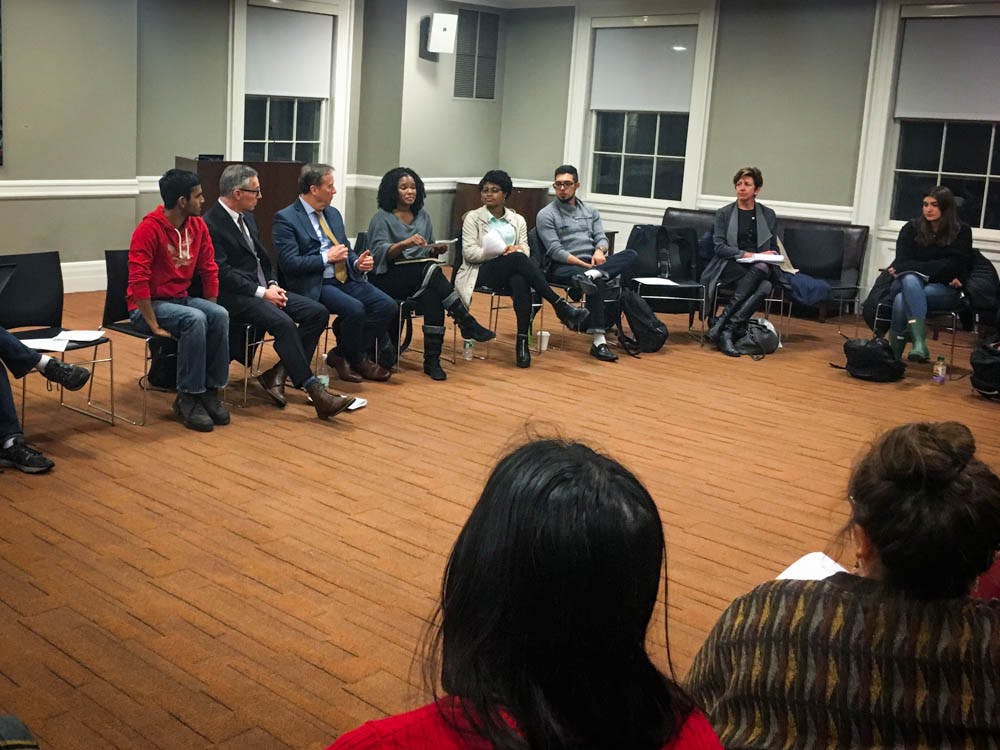Several administrators attended the Undergraduate Council of Students’ general body meeting Wednesday to discuss a working group proposal that would increase support for students whose financial aid packages include no expected “parent contribution,” according to text of the revised draft distributed at the meeting.
The proposal, which was also discussed at yesterday’s Brown University Community Council meeting, aims to address two issues: “food insecurity” and “insufficient funds for books,” according to the draft.
The University is “in a period of gathering feedback,” and expects to announce a plan for the 2018-19 academic year “that encompasses these proposals” soon, Director of News and Editorial Development Brian Clark wrote in an email to The Herald.
“We were thinking about our values as an institution and what (we can) really do within the law, within our means as a university that’s also sustainable,” said Vernicia Elie, assistant dean for financial advising. “We don’t want students to worry about food, we don’t want students to worry about books or supplies, but we’re starting with books.”
These measures would first be implemented for students in the lowest income group “knowing that (the issue) is probably broader,” Provost Richard Locke P’18 said, adding that the University would look to expand these programs to other students on financial aid after evaluating their effectiveness.
Locke assembled a working group to address the challenges that low-income students face at the University after he received input from students, including UCS President Chelse-Amoy Steele ’18 and Jonathan Jaramillo ’18, in fall 2017.
The University has yet to finalize the details for a textbook purchasing program, but would like to “have sort of a card that people could swipe (to) make sure that everyone has the books that they need for their classes,” Locke said.
“We’re prioritizing a system that doesn’t really force anyone to out themselves,” Jaramillo said. “But also there is a return policy that comes with this, so that (these students) can take full advantage during shopping period.”
Another element of the working group proposal that was discussed would require all first-year students to be on one of the two most substantial meal plans: the 20 meals per week plan or the Flex 460 meal plan, Elie said. The University would make this a requirement for all first-years regardless of socio-economic background “to try to prevent stigma” against low-income students, Locke said.
To further evaluate the question of food security among undergraduates, the proposal submits that the University establish an additional working group, which would consider issues that include whether to create a system for students with extra meal swipes to donate them to students in need, said Chief of Staff to the Provost Marisa Quinn.
Quinn, Locke, Elie and Dean of Financial Aid Jim Tilton emphasized that this proposal is insufficient in terms of addressing all of the obstacles that low-income students at the University may face, and said they would continue to seek new ways to support these students.
“If you’re a student here, you shouldn’t have to worry about where your next meal is coming (from),” Locke said. “If you’re a student here, you should have access to the books that you need to excel here.”
Voting for positions on the Undergraduate Council of Students and the Undergraduate Finance Board closes today at noon. Results will be announced at 10 p.m. on the steps of the Stephen Roberts ’62 Campus Center.





